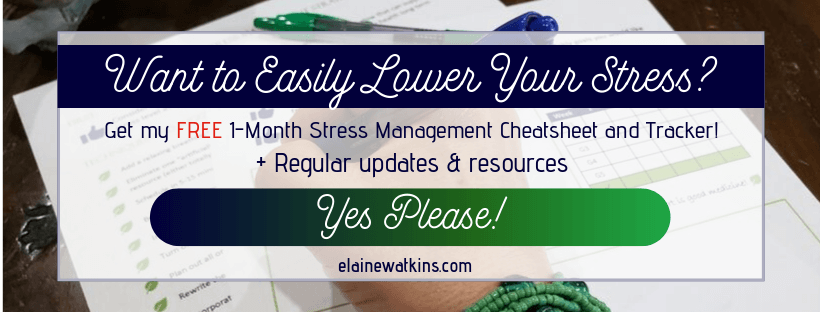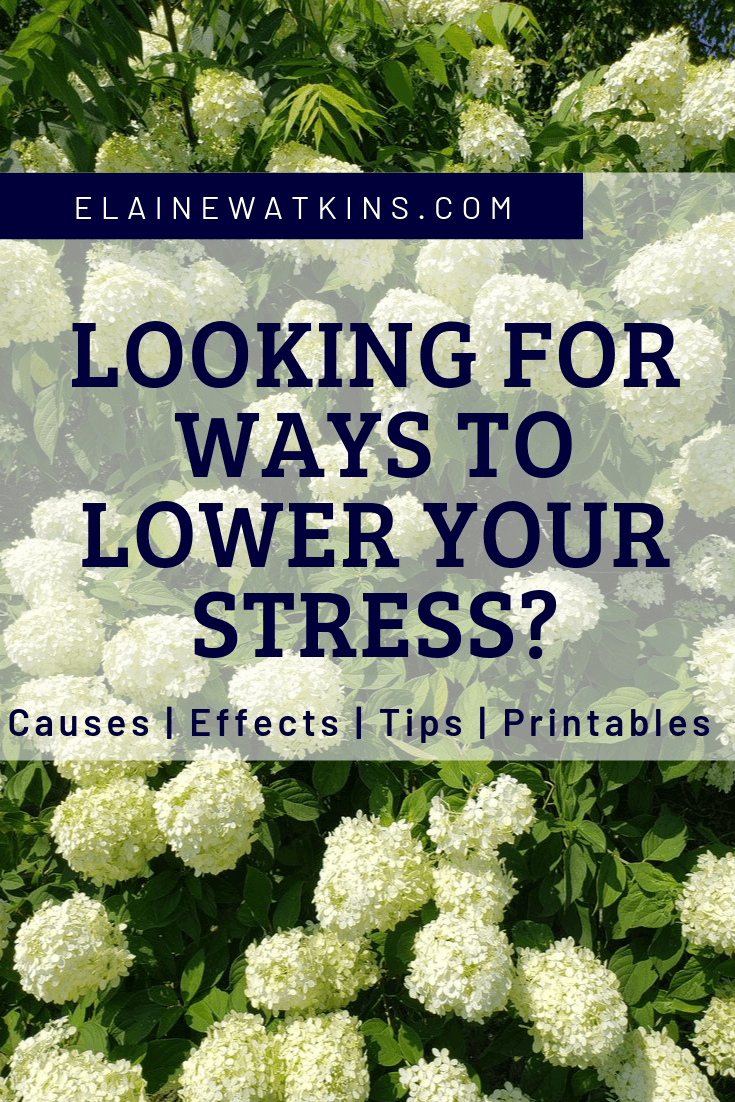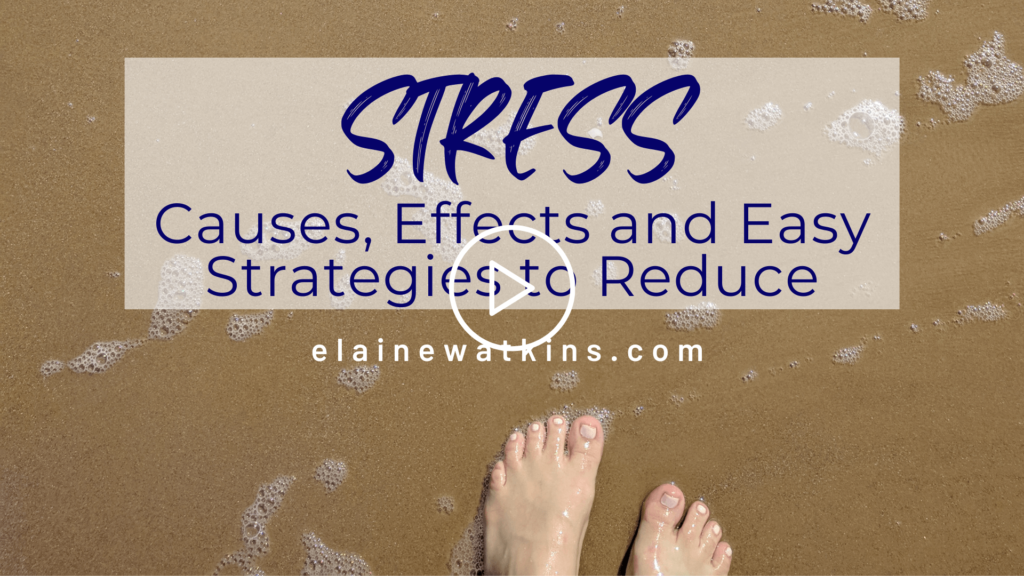Stress: Causes, Effects, and Stress Management Strategies (+Cheatsheet, Goals, & Trackers)

You’ve probably heard or been told that too much stress is bad for your health, and maybe you’ve even been told you need to “lower your stress”. You’ll find a growing collection of resources about stress management around here, and, while everyone’s situation is different, today we’re focusing simply on an introduction to stress causes, effects, and stress management strategies.
Stress has been tied to a growing list of challenges including:
- Allergies
- Digestive Disorders
- Heart Disease
- Diabetes
- Autoimmune Disease
- Depression and Anxiety
Definitely not something to trivialize, stress can kill you. But if you’re trying to make improvements in your health, ignoring your stress is like ignoring the impact of gravity as you jump out of a plane…without a parachute.
Not pretty!
So let’s look at:
- Causes
- Effects
- Strategies
Causes
I love how Dr. Amy Myers put it in her book, The Thyroid Connection. “Any challenge that your body must rise to meet is a stressor: a deadline at work (emotional), multitasking (mental), a heavy load of groceries to bring into the house (physical).”
Webster’s says stress is “a physical, chemical, or emotional factor that causes bodily or mental tension and may be a factor in disease”.
You might experience stress in relation to:
- Food choices – compromised selections (like foods void of real nutrients or loaded in additives not meant for consumption), selections specifically problematic for you, deficiencies, etc.
- Environmental exposures – toxins present in food, cleaners, personal care products, home and work environments, etc.
- Emotions and thoughts – rehashed unforgiveness, anger, and negative experiences, replayed internal negative criticism, etc.
- Physical challenges – obvious injuries and trauma but also internal challenges due to disorders and other health limitations
For a bit more information to stress how influential your food choices are:
- everything that you put in your gut all day long everyday affects the microbes in your gut, (killing, feeding, impacting their behavior)
- the microbes in your gut are constantly commuting with your brain and impacting your thoughts and functions positively or negatively
- nutrient absorption and many hormones in your gut are often affected
Effects
 When stressed, you activate what is called your sympathetic nervous system.
When stressed, you activate what is called your sympathetic nervous system.
When the sympathetic nervous system is in charge, otherwise known as fight or flight, your body is functioning as if you are running from a hungry bear. Several of your body functions shift either up or down including:
- accelerated heart rate and breathing
- lower digestive function
- lower sex hormone production and reproduction
- higher glucose (sugar) secretion
- accelerated aging
Now don’t get me wrong. A Healthy amount of stress is natural and even healthy.
But.
When you spend each day just hopping from stressor to stressor and staying in a sympathetic state, which means these and other body settings don’t get to switch off or on, you commonly start seeing problems, which can include:
- weight gain
- low energy
- fuzzy thinking, forgetfulness, migraines
- gut issues
- high blood pressure
- skin issues
- insulin resistance
- pain and inflammation
When you’re Not in stress-mode, you’re in a parasympathetic state, and rest and relaxation is primary.
Here your body can pay attention to functions including but definitely not limited to:
- improved digestion, nutrient absorption
- hormone balance and effective use
- clear thinking
- weight normalization
Stress Management Strategies
 Stress is normal and the shifts in your body can be good, if you ever Do need to run from a hungry bear.
Stress is normal and the shifts in your body can be good, if you ever Do need to run from a hungry bear.
But…Why not set yourself up with lifestyle strategies that can support balance and health?
- seek to minimize stress and stressors whenever and wherever possible
- incorporate parasympathetic support systems and habits whenever and wherever possible
While you can’t totally control absolutely Everything, there is so much you can do, and it doesn’t have to be difficult or overwhelming:
- take a moment to pause (finish and shut down the thoughts relating to what you were doing, breathe, then open up your thoughts to what you will be doing next)
- break down functions or responsibilities that are overwhelming into manageable parts
- create 1 or more go-to daily functions that don’t take much time but do release tension
- add foods that feed your health and support healthy stress management
Just about everything on my website somehow ties (either directly or indirectly) to some area of stress management.
Here are just 2 additional posts that you might like for a start:
- check out my Take Some Time for You post with 5 helpful suggestions
- enjoy Staying Hydrated: Info, Tips, and a Challenge
This just scratches the surface on stress, but the fact that you’re even considering stress management and what you can do is huge, so now’s the time to get started on stress management strategies that fit you!! 


